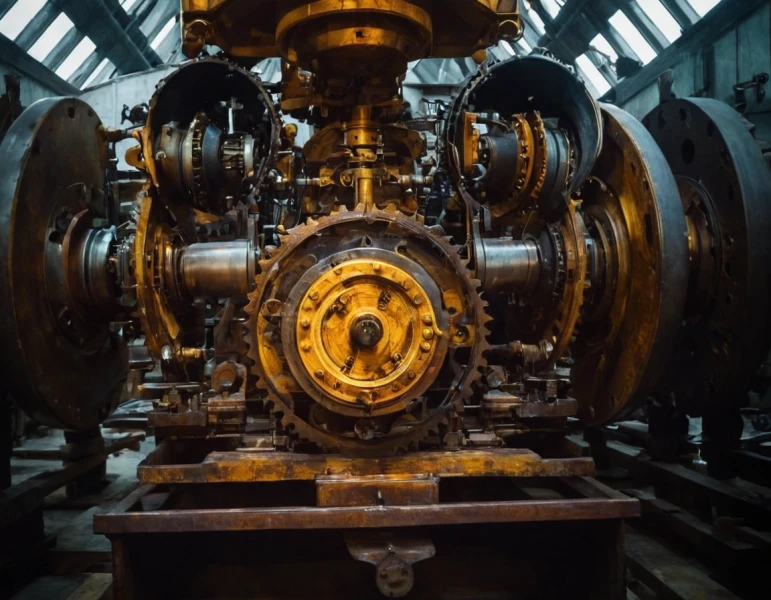Educa UNIVERSITY|SCIENCE AND ENGINEERING
Mechanical Engineering: The Heart of Technical Innovation
Related Masters
Mechanical Engineering: The Heart of Technical Innovation
Let's see, let's talk about mechanical engineering, that discipline that sometimes seems to be everywhere, but few really understand. I, from my experience and years in the field, can assure you that if you stop to think about the cars you drive, the airplanes you take or the machines that build the houses where you live, they all have something in common: mechanical engineering is behind each of these elements.
This article is intended for you to understand once and for all what mechanical engineering is, what its importance in the modern world is, and how it has influenced my life, because it's not just about mathematics and physics, but about solving real, everyday problems.
What is mechanical engineering?
Mechanical engineering is a branch of engineering that focuses on the design, analysis, manufacturing and maintenance of mechanical systems. To understand it better, we can say that it is in charge of creating and improving everything that moves or has to do with forces and energy. From a simple fan to complex hydraulic systems in an industrial plant, it all falls under the umbrella of mechanical engineering.

But make no mistake, it's not just about designing and manufacturing things. Mechanical engineering is also about analyzing how those objects work, how they move, how they transfer heat, and how they can do so more efficiently. That is why disciplines such as thermodynamics, fluid mechanics, and resistance of materials are fundamental pillars in this field.
Applications of mechanical engineering
The interesting thing about mechanical engineering is that its field of action is practically unlimited. Today, a mechanical engineer may be working on creating industrial robots that optimize factory production, developing cooling systems or designing aircraft turbines.
Some of the main areas where mechanical engineers work magic include:
- Automotion: From creating more efficient engines to the aerodynamic design of electric cars.
- Aerospace: The design of airplanes, helicopters and even spacecraft relies on mechanical engineering to ensure functionality.
- Energy: Wind turbines, thermal power plants and renewable energy systems require mechanical engineers to design and maintain them.
- Robotics: This is one of the most exciting areas. Mechanical engineers work on creating robots that enhance industrial automation.
- Manufacturing and production: From automobile factories to food plants, everything requires efficient systems designed by mechanical engineers.
My personal experience
My first interaction with mechanical engineering was in an industrial production plant. It was a fascinating place, full of huge machines that seemed to have a life of their own. What struck me most was seeing how everything was connected; from the tiny valve that controlled the pressure of the gases, to the gigantic engine that started the whole system. This is where I realized the importance of understanding every little detail and how each part contributes to the overall operation.
I can't count how many times I've had to solve problems that seem simple at first glance, but hide a whole series of calculations and analysis behind them. Do you know what it's like to calculate the flow of a fluid through a pipe? It's not just turning on the tap! It requires understanding how forces interact with materials, how vibrations can affect structures, and how heat must be properly managed.
And mind you, you don't do all this with a pocket calculator. You need specialized software, such as AutoCAD or SolidWorks, to design the parts and simulate their behavior.
The skills of a mechanical engineer
Over the years, I have learned that being a mechanical engineer is not just a matter of having a good knowledge of physics and mathematics. You also need to be an excellent communicator, know how to work in a team, and have a critical mind. Because while yes, much of the work is done on the computer, much of a mechanical engineer's real value comes from his or her ability to solve problems effectively and work with others to find solutions.
Design and analysis: A mechanical engineer must master design programs such as AutoCAD and SolidWorks to create detailed drawings and three-dimensional models of the parts or systems he or she will build.
Applied mathematics and physics: From thermodynamics to fluid mechanics, mathematics is present in every step of the process.
Innovation: Ways must constantly be found to make machines and systems more efficient, environmentally friendly and durable.
Conclusion: Mechanical engineering, the engine of the modern world
Mechanical engineering is, in many ways, the engine that drives the modern world. From the airplanes we travel in, to the factories that produce the goods we consume, everything has something mechanical in its design and operation. Mechanical engineers don't just make things work, they look for ways to constantly improve systems to make them more efficient and sustainable.
If you're thinking about studying this career or are already part of this fascinating world, I encourage you to pursue it. It is a field where you will never stop learning, where every day there are new challenges and where you can always feel part of the progress. Yes, don't forget to sharpen your calculus pencils and prepare yourself to solve problems that, at first glance, seem impossible.
Faculties
Trainings
The faculties embrace diverse academic disciplines and fields of study, opening doors to new perspectives and exploring different spheres of wisdom in a constantly evolving world.
Legal Notice • Enrollment Conditions • Privacy Policy • Cookie Policy• Copyright @ 2024 • Educa University
Powered by














